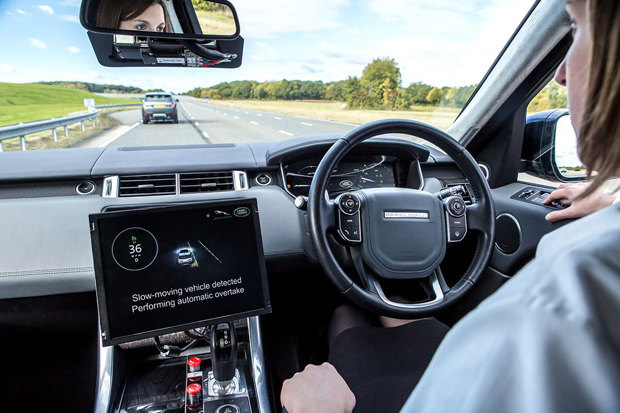Self-driving cars on UK roads by 2026 as new bill becomes law

A new piece of legislation has become law which could herald the arrival of self-driving cars on British roads in just two years’ time.
The new Automated Vehicles (AV) Act has received Royal Assent, cementing the new law into the statute books.
The Government describes the new law as "world-leading" and says it will put Great Britain "firmly at the forefront of the self-driving technology revolution."
It also claims it will help make Britain’s roads safer by reducing the human error factor that contributes to nearly 9 in 10 road collisions.
More than 38,000 new jobs could be created in a new self-driving tech industry, estimated to be worth a whopping £42 billion.
The new law sets out a comprehensive legal framework for cars running in self-driving mode – ensuring that drivers will not be held responsible for what the car does while in autonomous mode. Instead, the responsibility is passed on to car makers, insurance providers and software developers.
Drivers will become ‘users-in-charge’ while in self-driving mode.
Self-driving vehicle approval will be carried out via independent investigations. They will need to achieve a level of safety as least as high as skilled drivers and pass a series of other safety checks, before being allowed onto British roads.
"Britain stands at the threshold of an automotive revolution," says transport secretary Mark Harper. "This new law is a milestone for our self-driving industry, which has the potential to change the way we travel forever."
While welcoming the new law, RAC head of policy Simon Williams added there is still a lot of work to do in bringing drivers along on the journey.
"RAC research conducted last year showed 58% of drivers are scared by the idea of fully autonomous vehicles and just 15% think they’ll make the roads safer, so there needs to be a real culture change if we’re to see the public fully embrace them."
Alex Kendall, CEO of Wayve, a London AI startup that recently secured more than $1bn of investment, says the new bill is a "critical milestone for the UK’s deployment of self-driving technology and cements the UK as a global leader in regulating this sector."

I received an NIP for speeding but can't view the evidence - what should I do?


